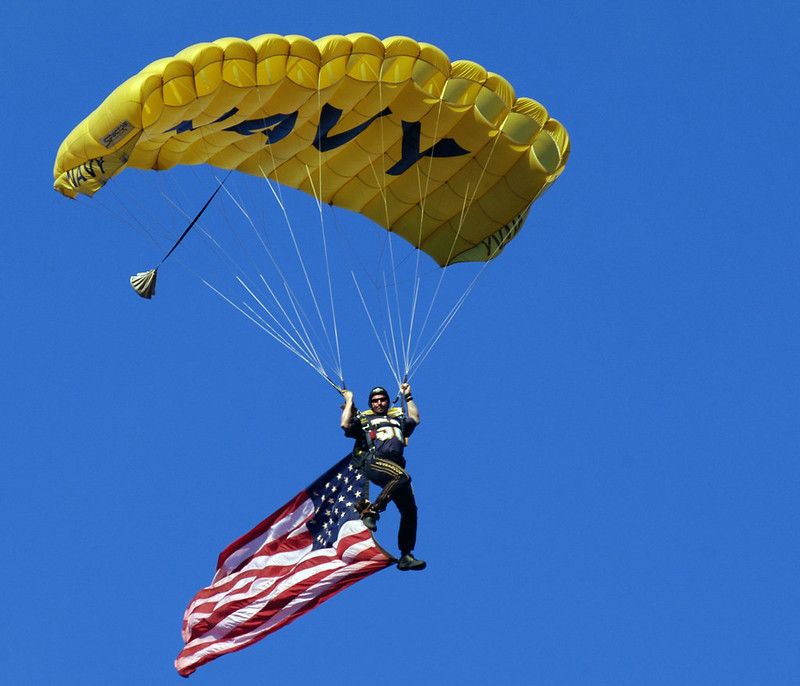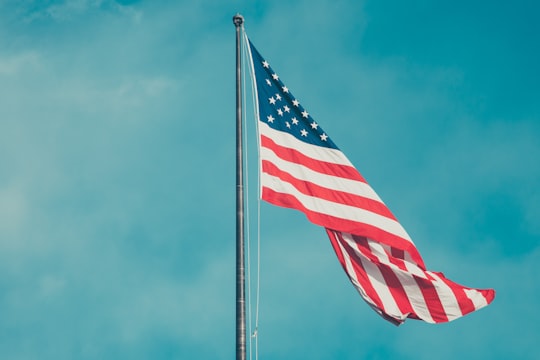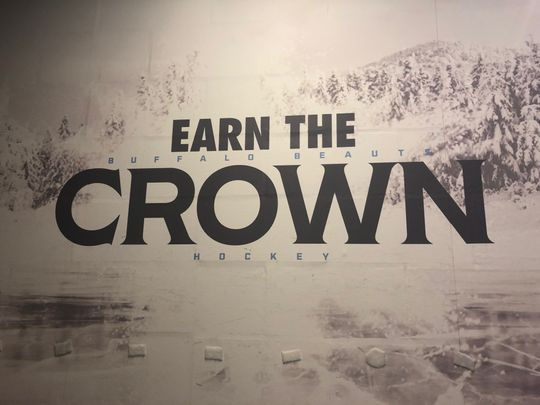Despite what we want to believe about them, women's sports are far from immune to the relationships that have made men's pro sports so inherently linked to the concept of empire. Men's pro sports directly have their origins in empires and as propaganda – something that gets conveniently overlooked in the current state of capitalism when we are trying to define success as an athlete, league, or franchise.
The men's pro sports model didn't rise out of a neutral condition; it owes its success to empire and oppressive conditions which were explicitly designed to sustain it and which are protected by the most powerful people in society. Women's sports and other, more inclusive practices of sport were not meant to succeed under these conditions, and in an attempt to do so, they both intentionally and unintentionally align themselves with empire and with capitalism instead of trying to change the conditions themselves. Women's sports, in this case, have become propagators of empire rather than the forces for social, political, and cultural justice that they could be.
Organized sports have been used by state actors and people in power for millennia to shape public opinion and influence culture. Ancient Greeks who competed in and attended the Olympics often used the Games as a way to obtain political and social favor, and in fact the venue was also the site of treaty signings and diplomatic negotiations. The very earliest origins of sport are likely in prehistoric military training exercises. Very little has changed for thousands of years about how the way humans play and participate in sports in an organized setting except the scale and the window dressing.
Sports make people feel good and appeal to our sense of togetherness; they can create a real feeling of solidarity and love. The desire to "stick to sports" is often a desperate and cowardly attempt to not interrogate the status quo of society in any way, but that cowardice in some can come from a real desire to see people who have different viewpoints and backgrounds "just get along." The world is, however, sometimes an ugly place, and "getting along" can come at the expense of people who have been allocated less power and fewer resources in society. That cowardice can be spun by capitalists into a call to action: stick to sports, otherwise, you're just being divisive. This is of course good for the professional sports industry. People won't spend money on teams and leagues and events that don't make them feel good about themselves.
Thus we have a social space where the enjoyment of sports is inexorably tied to capitalism, and capitalism is inexorably tied to our government and state power (especially in the United States). The links between American pro sports leagues and the military are extremely stark when taken in historical context; usually such relationships are most prominent and fervent in aggressive, authoritarian, expansionist states. The militarization of what many consider to be a personal hobby or pastime isn't new by any means, but it continues to serve the purpose of shutting down conversation about why we participate in sports this way. Especially in the United States we live in a culture that enshrines the military and police to an unimpeachable, almost god-like status. Questioning the US military, the police, or their presence at sporting events can lead to violent and vitriolic retaliation because it is considered "unpatriotic" and subversive.
Love of country requires a love of institutions and publicly showing that you do not support institutions goes against the grain of everything organized sports has become – which is, a mechanism for selling an emotional connection (as a product) to regular people. But that connection isn't to the sport itself but to imperialism and authoritarianism. Professional sports, by design, are meant to integrate these concepts into our daily lives, into our everyday perceptions of joy and leisure and fun and community. The United States Department of Defense, for example, is not somehow by accident giving the NFL millions and millions of dollars to do military exercises and celebrations at football games.
As much as it feels uncomfortable to say so, because we do enjoy sports so much, they are perhaps the purest and most pervasive form of propaganda on Earth. Regulation and competition requires resources, which have often throughout history been held by powerful men of an elite upper class. And the community space created by sports is also designed for this type of powerful man, because he created it and incubated it. People who are already in power have a vested interest in maintaining sports as this type of space. The involvement of governments, public funds, the military/police, and major corporations in sports is an essential means by which these institutions gain the goodwill and trust of regular folks. Any good advertiser will tell you that juxtaposition is essential. When you're materially responsible for something that makes people happy (like the NFL playoffs), those people will be less likely to question morally reprehensible things that you do (like donate to Donald Trump's re-election campaign or use drones to drop bombs on civilians including children in the Middle East and participate in the United States' perpetual war machine).
All of this is to say that it's increasingly disappointing when athletes, leagues, and organizations who have the opportunity to be transformative in this space simply follow in the footsteps of men's organized sports by embracing imperialism. The National Women's Hockey League has increasingly aligned itself with militarism in the five years since its inception. The United States Women's National Hockey Team, with few exceptions, met with Donald Trump at the White House following their gold medal victory in Pyeongchang. Women's sports teams at every level, from college to pro, often have military appreciation events just like men's sports: the NWSL, the University of Minnesota Duluth, the WNBA, Ohio State. We still play the national anthem and are expected to stand and salute at nearly every organized sporting event in the US, no matter who is participating. Canadian sports also have their fair share of military appreciation events, and many former Canadian Women's Hockey League players took it as a point of pride that their ranks included cops, even as Canada has continued to try to reckon with its own legacy of police violence, particularly against First Nations, Métis, and Inuit people, whose land they've stolen.
The legacy of empire is made more repugnant by the layers of propaganda and false morality laid on top of it. Saying that women's sports are truly disruptive in this situation shows a very narrow vision of justice, equality, and feminism. Women's sports are often desperate to show that they belong in the same oppressive conditions of men's sports, that they, too, can be forces of empire, because for so long we've equated success with monetary value under capitalism and acceptance within the conditions of empire. Sometimes, individual athletes have made statements and taken action and shown that it doesn't always have to be this way – only to be ostracized and excluded from their own sporting communities for daring to challenge the sanctity of empire and capitalism. Challenging empire means challenging the social conditions created by it, and nothing could be more threatening to the billionaires who operate both sports leagues and the media companies that cover them and sell them to us.
Sports communities, leagues, and fandoms often nakedly show that their allegiance is not to something as simple as "the game" itself – which is the very defense they use to claim that their participation in sports is somehow apolitical. They show that they care more about the empire than anything else. And also that its supremacy is fragile – that it could, really, be toppled by a critical mass of people who actually give a shit about this and are willing to discuss sports within the framework of materialism.
Sports are not the only frontier for these fights and for this discourse, but to discount them as mere entertainment is foolish. They are a powerful force of social and political indoctrination because they are entertaining and because they appeal to our need for community, our desire to play.
The willingness to acknowledge this varies from sport to sport, from person to person. For example, Donald Trump has not invited a WNBA champion to the White House since taking office. In 2018, Minnesota Lynx coach Cheryl Reeve took it as an insult, but both she and the Washington Post failed to comment on what visiting the White House and being honored by someone like him might mean about the Lynx or the WNBA. Former Presidents Bill Clinton, George W. Bush, and Barack Obama all honored WNBA champions during their time in office, after all. Though each of these men are also war criminals and supported oppressive domestic policies, those championships all came during a time when "women should be included in stuff" and "racism is bad, actually" were not subject to as much vitriolic backlash in public forums, and there was far less open discourse about the nature of empire.
Of course Donald Trump hates women and is a serial abuser, and he also hates the poor and hates people of color. He actively courts and has always actively courted the sorts of people who would vastly prefer if everyone brown and everyone queer and everyone trans and everyone Muslim were put in concentration camps, and in fact his administration actively puts people in concentration camps every day. What validation can you get from that kind of invitation? It seems clear that to not be invited is more of an honor than the other way around. It means you aren't essential to his operation, that your function as state propaganda wouldn't further the empire. And why would it, with so many WNBA players who are Black, queer, and Black and queer at the same time? The window has shifted so dramatically in the last few years that Blackness and queerness aren't even seen as potential propaganda tools by the state, which should say a lot about who they will even pretend to protect.
The empire is not for all women, for people of color, for the poor, for queer and trans folks. It was built with the explicit purpose of excluding them, and it can't be modified or jostled into an exciting new shape that includes more people. This is because empire and capitalism only work when there is an underclass. By trying to nudge their way into these spaces, women's sports often admit that they consent to being the underclass and that they consent to being social and political propaganda.
They even willingly create state propaganda, such as the Metropolitan Riveters taking their uniform inspiration from WWII fighter planes and the Rosie the Riveter image itself, which is literally historical war propaganda. The ongoing fascination with the image of Rosie and with WWII often obscures the fact that, for example, the United States and Canada turned away Jewish refugees who later died in Nazi concentration camps, or that the U.S. only entered the war because they were attacked by the Japanese and had not prior to that been exactly champing at the bit to stop Nazism. Undoubtedly, the mass exodus of young men to war overseas meant that women in American society became more independent in their daily lives, but the appropriation of that fact into a chiefly pro-war message conflates feminism with national pride and with war itself. WWII has gone down in history as a "good war" because it defeated a fascist, expansionist state that committed multiple acts of genocide, but it should not excuse Americans from interrogating the actions of their own country in the years before and since the fall of Nazi Germany. Unfortunately that is exactly what the legacy of that war has become – an excuse to hide behind while the American empire commits atrocities of its own.
Invoking WWII and wartime propaganda is one of the more direct and obvious examples of a women's sports team aligning itself with empire. But the cultural conditions are clear. To succeed, you have to court the empire, because that's where the money and the power and the resources are. The alternative is to re-define what constitutes success. Are you successful if you create a sporting and cultural space where people can be themselves and participate without fear of retribution? Today, that isn't the ultimate goal, but something to maybe consider afterwards once the goal of building a business has been achieved. The conditions under which that business is built, though, will ultimately define how it can grow and change. You can't create something more inclusive when the sustainability of your business is dependent on an empire and an economic system that excludes and hurts people. You can't bring more people onto the lifeboat when the craft you've constructed is only designed to hold certain people.
So how do you, say, "grow the game" under these conditions? Maybe you can't, and maybe you shouldn't. Maybe we should be trying to change the conditions themselves – and stop consenting to being the underclass, when we can be so much more. To settle for less is to actively choose to harm marginalized people who have suffered under the weight of imperialism. Sports aren't necessarily life and death, but they are a very useful barometer to see what society values and who is most important in public life. Women's sports arguably has a responsibility to advocate against empire because empire is what serves to create an underclass that has often included women and will continue to include those among us who are not white, cisgender, straight men. Don't ask for a seat at the table – start your own fucking table. Continue the legacy of sports as a political and social force by using it to be transformative and inclusive, rather than just the willing propaganda arm of imperialism.
(Photo: Marion Doss/Flickr)







